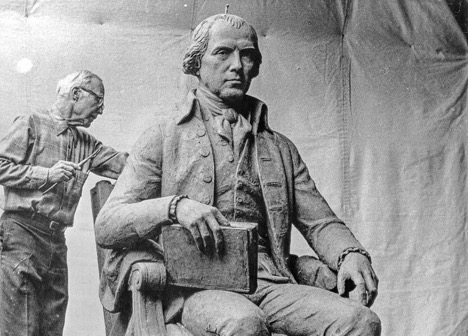A proper national politics naturally protects both our shared prerogatives and our individual rights.
Post-Trump Politics

With no going back, it's time to look ahead.
In an important new cover essay for the Claremont Review of Books, Christopher DeMuth argues that today’s political upheaval is “the result of powerful social and technological developments that have weakened our institutions of representative government. Harnessing today’s nationalist impulses is a task for conservatives and libertarians,” he writes, “who stand in the shoes of the liberal reformers of the middle and late 19th century.”
Among DeMuth’s recommended reforms: a reclamation of Congressional authority from the regulatory state, a civic education leavened by a dedication to free inquiry, and an orderly transition from financing the welfare state through debt to financing it through tax revenue. Each effort, DeMuth writes, “emphasizes pluralism and competition over monopoly and regimentation, and leaves cultural and ideological battles to be fought out, privately and locally, within a framework that discourages coerced conformity.”
In response to these proposals, Henry Olsen counsels that constructive nationalist policy must respond to the moral limitations of today’s aristocratic meritocrats; F.H. Buckley warns that national solidarity may remain elusive if constitutional powers remain separated; and Yuval Levin casts Trumpism as a transitional movement; and Richard Reinsch suggests reform begin with reining in the federal and academic bureaucracies.
The American Mind presents a range of perspectives. Views are writers’ own and do not necessarily represent those of The Claremont Institute.
The American Mind is a publication of the Claremont Institute, a non-profit 501(c)(3) organization, dedicated to restoring the principles of the American Founding to their rightful, preeminent authority in our national life. Interested in supporting our work? Gifts to the Claremont Institute are tax-deductible.
The national education reform the Right should advance protects and respects the American people.
Our federal and academic bureaucracies have had it too good for too long.
Deliberation can deliver the nationalism we need.
What the anti-Madisonians wrought.
Our moralizing modern-day aristocrats are at odds with American justice.






